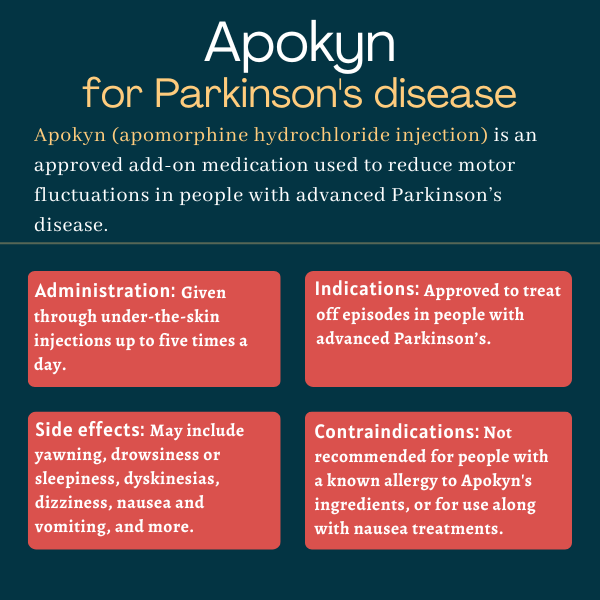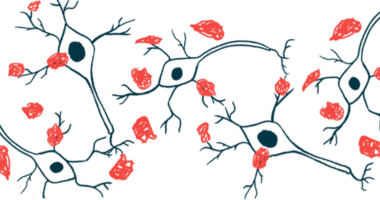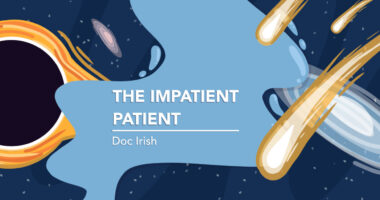FAQs about Apokyn
The U.S. Food and Drug Administration approved Apokyn in 2004 as an add-on treatment for off periods in people with advanced Parkinson’s disease who are on levodopa-based treatments. The decision marked the first U.S. approval of a medication for off episodes in people with advanced disease.
Clinical trials of Apokyn have not included pregnant or breastfeeding patients, so it is unclear whether the therapy is safe in such conditions. Animal data has suggested, however, that the medication may cause fetal harm. Patients on Apokyn who become or plan to become pregnant should discuss these topics with their doctor.
Given its potential to cause drowsiness, and due to reports of people falling asleep during daily activities while on the therapy, Apokyn’s U.S. label recommends that patients starting the therapy do not drive or engage in other potentially dangerous activities until they know how it affects them. If patients do experience such adverse events, they are recommended to avoid those types of activities until they talk with their doctor.
As each person can respond differently to a medication, there is no standard timeline for when Apokyn starts to work. In the trials that supported the therapy’s approval, a significant reduction in motor symptoms during off periods could be observed in Apokyn-treated patients within 10 minutes, and the best treatment effects were seen after 20 minutes. Still, patients are advised to talk with their healthcare team on how the therapy can help in their particular case.
Hair loss and weight gain have not been reported as side effects of Apokyn in clinical trials, but some studies published after its approval have indicated that some patients can gain weight while on the medication due to compulsive eating, a known side effect of dopamine agonists. Patients should talk with their healthcare team if such events occur.
Related Articles

 Fact-checked by
Fact-checked by 








